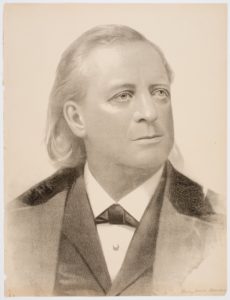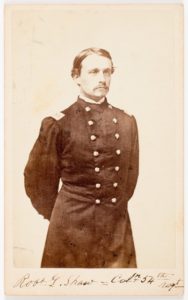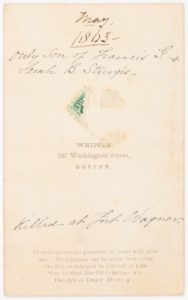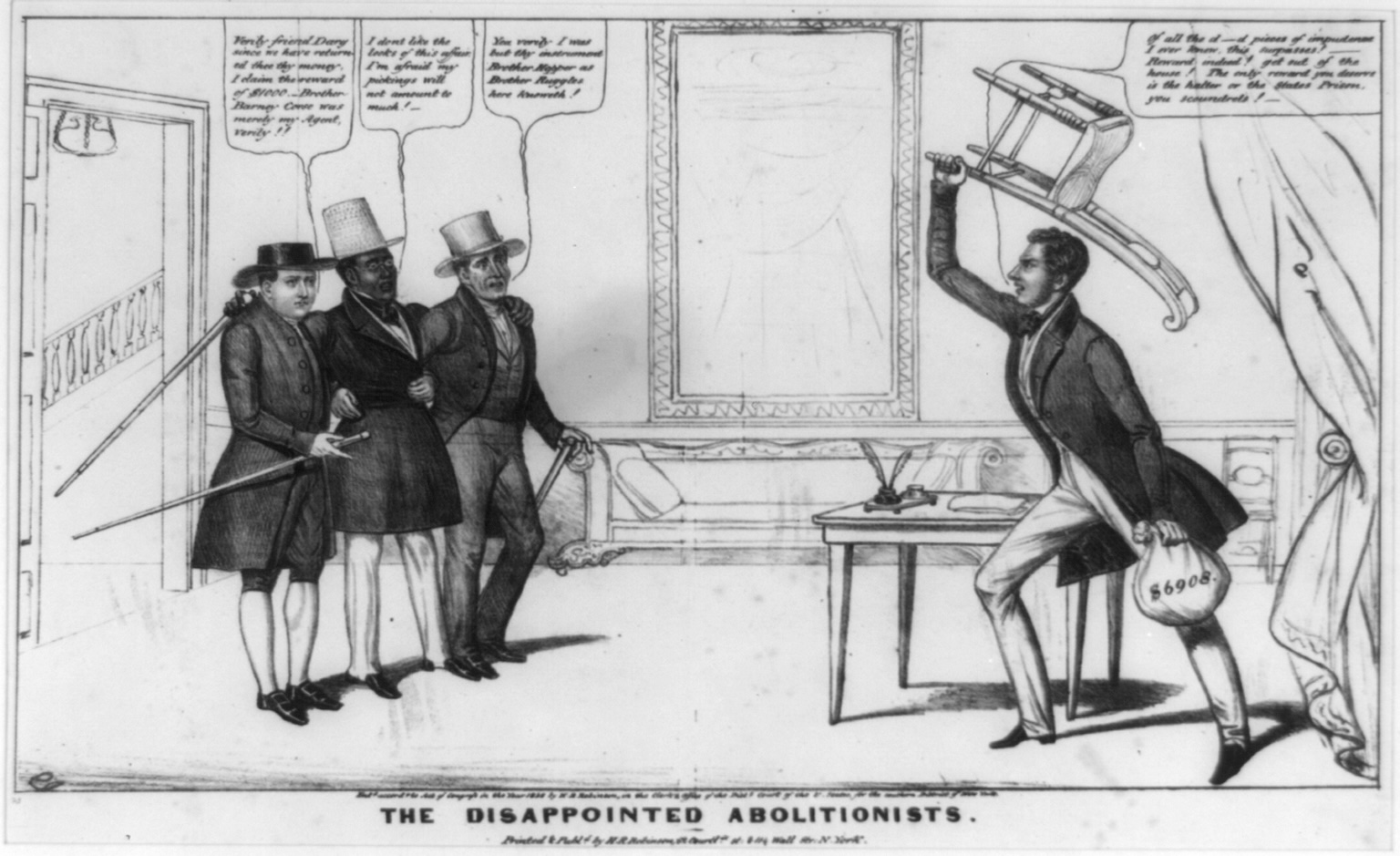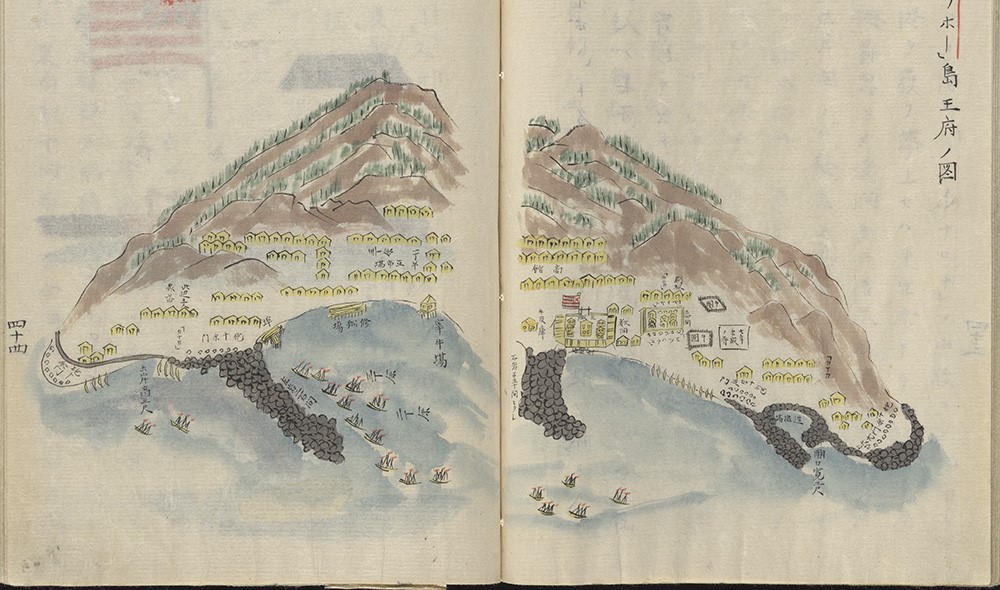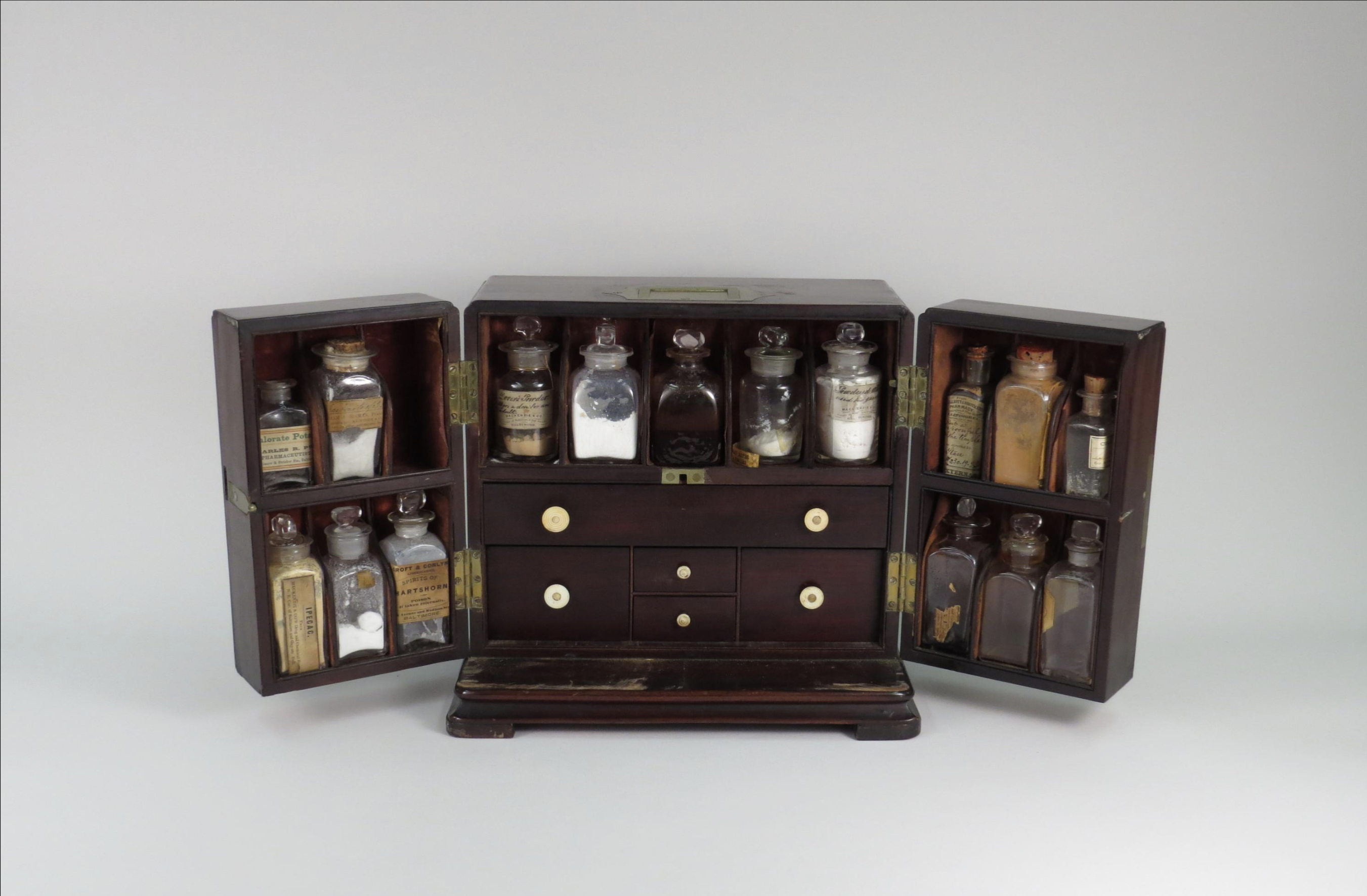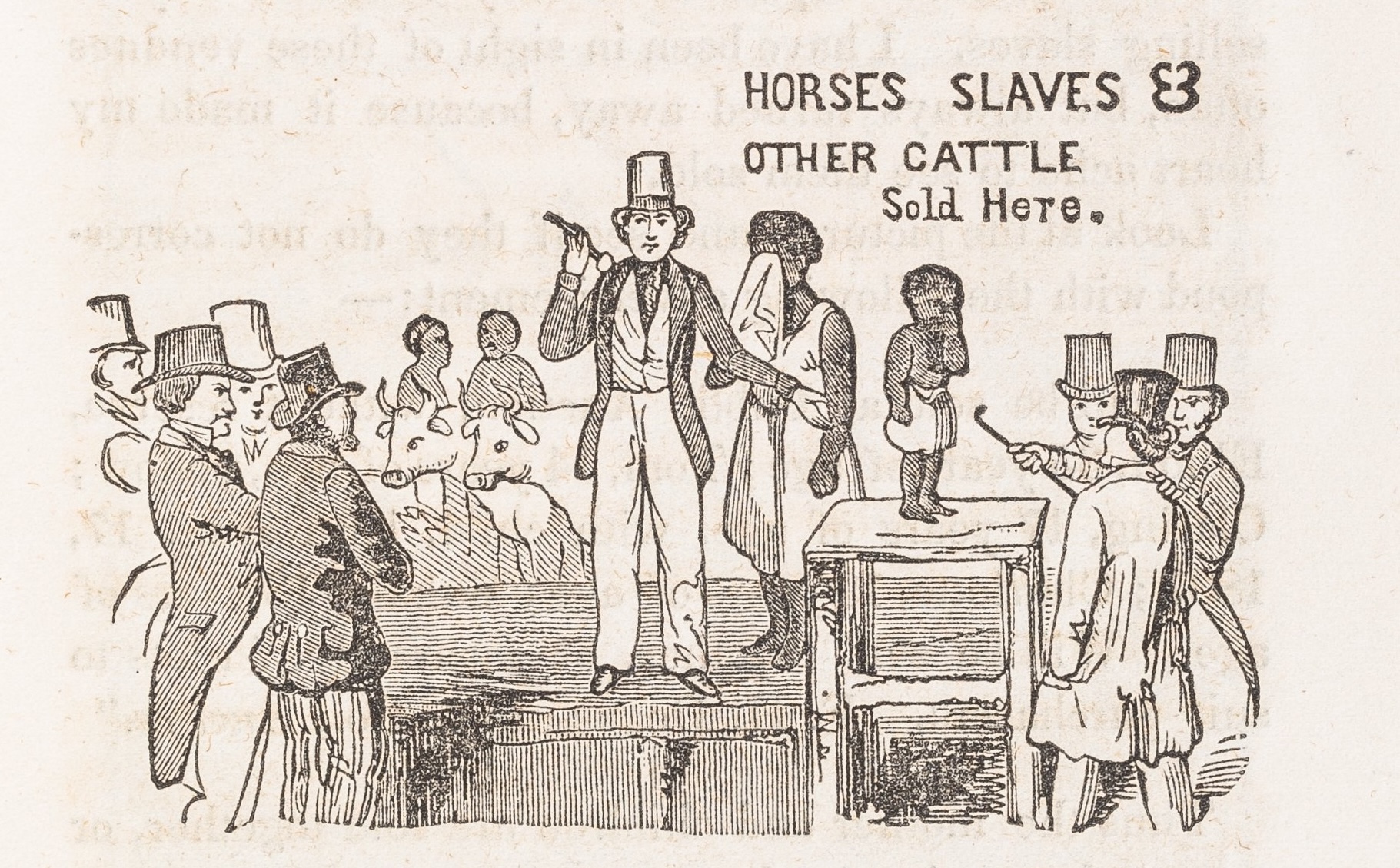Ralph Waldo Emerson probably was not thinking about Henry Ward Beecher’s buoyantly muddled mind when he declared: “A foolish consistency is the hobgoblin of little minds. . . . With consistency a great soul has simply nothing to do. . . . Speak what you think now in hard words, and to-morrow speak what to-morrow thinks in hard words again, though it contradict every thing you said to-day.” But Beecher could not have expressed more perfectly his self-understanding as a soul too great to worry about consistency in politics, ethics, or love. At the peak of his fame, he would join the antislavery cause and grab a flamboyant bullhorn, sending “Beecher Bibles” (rifles) to antislavery militants in Kansas and staging a fake slave auction from his pulpit in Plymouth Church, a massive evangelical institution in Brooklyn (3,000 members) which was also an important stop on the underground railroad. However, after Lincoln’s assassination, Beecher would do an abrupt about-face, calling for the re-establishment of white brotherhood and the abandonment of black rights. Like his sister Harriet Beecher Stowe’s novel Uncle Tom’s Cabin, Beecher’s brand of abolitionism left a toxic legacy of misogyny and racism.
When Forgiveness Enables Tyranny: The Unbearable Lightness of Henry Ward Beecher
From 1863 onward, Beecher was obsessed with forgiveness. The most influential preacher in the country, he aggressively agitated for the Union to extend complete forgiveness to Confederates.
Although deemed the dullest child of his famous preacher-father Lyman Beecher, Henry Ward Beecher (1813-1887) possessed a Whitmanesque talent for loafing, chatting up, and playing the ham with all classes of society. When he assumed his first pulpit, he quickly appreciated how religious authority intensified his emotional and sexual appeal. (Figure 1) During the hardscrabble years of his early career and marriage, the structure of patriarchal marriage fortified his social freedom and sexual appetites. His fiancée, Eunice Bullard, had waited anxiously in her father’s house for seven years while Henry finished his education, traveled, and started his career. When he appeared unexpectedly on her Massachusetts doorstep one afternoon in 1837, he gave her three days to prepare their wedding, after which he brought her to a dismal, malaria-ridden town in Indiana. For two weeks he found it amusing to help her set up house in two dilapidated rooms above a warehouse, but after that Eunice was on her own to manage their personal life. She cleaned, cooked, took in sewing to pay the bills, and survived one pregnancy and child death after another while fighting bouts of malaria. The conditions were so harsh that when she returned to Massachusetts for a visit after four years, her own mother did not recognize her and a stranger on the train mistook Beecher for her son rather than her husband.
Eunice’s condition did not garner sympathy in a society that prized women for their beauty and sweetness. Henry himself soon found her repugnant, a “half-wilted flower” and a martyr who was “always eager to cast herself as a victim.” When he whiled away hours chatting with fishermen on the wharf or stopping by a tavern, he was admired by townspeople, not judged for neglecting his family, while the same people heaped contempt on Eunice, dubbing her “a miserable woman.” When she complained, they assured themselves that “no one believes a word she says.” Illustrating the cultural dynamic that Cornell philosopher Kate Manne calls “himpathy”—an apt term for the misogynistic emotional economy in which sympathy is reserved for men and withheld from women—Beecher was seen as shining more brightly in juxtaposition to his dreary wife. He was charming, eloquent, and entertaining; she was a whining shrew.
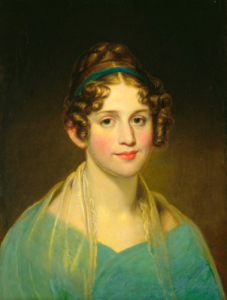
Fast-forward a quarter century to August 7, 1863. Civil war was ravaging the United States, but the country’s most famous preacher was on holiday in Switzerland. As usual, Beecher was unencumbered by a wife or children, and his head was in a romantic haze. “My dear Mrs. Shaw,” he rhapsodized, “Last night as I was lying in the grass . . . & pulling crocuses . . . of a delicate pink color, they, in some subtle mode of suggestion brought you to my thoughts.” (Figure 2)
His dear Mrs. Shaw was Sarah Blake Sturgis Shaw, whose only son, Col. Robert Gould Shaw, had been killed three weeks earlier. (Figure 3a/b) Sarah and her husband were ardent abolitionists who had encouraged their son to accept command of one of the Union’s first black regiments, the Massachusetts 54th. At the age of twenty-five Col. Shaw was shot in the chest during a battle at Fort Wagner, South Carolina. (Figure 4)
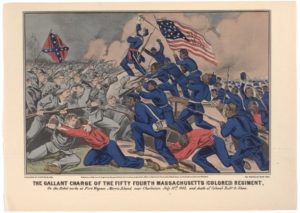
Condolences streamed into the Shaw household from around the world, while Beecher, physically and emotionally disconnected from the war’s suffering and horror, continued his letter on Aug. 12 from Lake Como. He mused that “a mountain, like a friend, needs to be known in all its moods. . . . The joys and sorrows that are symbolized by such mighty imagery cannot sink down into the pool of little things. The loves, and worship, the enthusiasm & noble passions of a patriotic soul that, in such scenes, have been associated into these sublime forms & phenomena, must be grander, & more elevated.” Beecher bore witness to his noble, patriotic, grand, and elevated soul for seven pages, confessing in his final paragraph that the
“thunder of war at home . . . seems to me afar off, like a dream! At times, it seems unworthy to be [in] this land, worried every day with my enjoyment, while my country is in her agony! Nor am I quite eased, when I say to myself, that it is that I may the better serve her, that I am resting here. Excuse the length of my letter. Indeed, I ought to ask excuse for writing at all. But I follow my feelings. I go tonight to Milan, thence Venice, & then to France & Germany. I think [to] be in England by the middle of Sept.”
The tension he articulates between guilt and pleasure was characteristic of Beecher. Grappling with grief and suffering was not his thing. He specialized in maudlin theatrics that staged his emotions at the center of every drama. His church in Brooklyn had sent him on a six-month European holiday, all expenses paid, because in March 1863 he had shown signs of a rare depression. (Figure 5) The church board may or may not have understood that his emotional state was provoked not so much by grief over the recent death of his father as by escalating rumors about his sexual misbehavior and threats of public exposure following the death of his longtime mistress, Lucy Bowen, wife of a powerful church founder. On her deathbed, Lucy had confessed to her husband, Henry Bowen, the details of how Beecher had seduced her into an affair that they carried on in his private church study for more than a year. She also noted that she had discovered another woman slipping into Beecher’s study with a private key of her own.
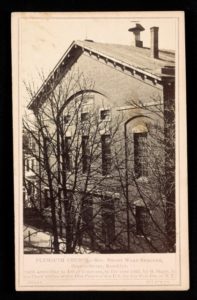
Since the earliest days of Beecher’s career, a stream of young women had declared their adoration for their pastor. In many cases, experience transformed adoration into accusations of seduction, rape, adultery, and blackmail. Evidence suggests that he fathered at least one child out of wedlock and covered the expenses of more than one abortion. Beecher had a special habit of seducing the wives of his closest friends, patrons, and protégés in the church. The husbands often suspected but were reluctant to know what they did not want to know. When they did confront Beecher, he typically cried copious crocodile tears and threatened suicide, but he banked on the sexual economy that incentivized husbands not to sully their families with stories that would bring more dishonor to their injured wives than to Beecher and would cost the husbands dearly in social capital. Nonetheless, rumors could not be suppressed; angry husbands and distraught women proliferated, and Beecher feared that reality might penetrate his fakery.
On November 2, 1872, an outspoken women’s rights activist named Victoria Woodhull, who was almost as gifted in theatrics as Beecher, published a front-page story detailing Beecher’s longterm affair with Elizabeth (“Lib”) Tilton, the wife of his former protégé, Theodore Tilton. An international sex scandal and court case ensued. Many books have described and analyzed the Beecher-Tilton affair, and I do not have space to delve into it here. Suffice to say, Beecher was acquitted while Woodhull was convicted of obscenity and sent to jail for having dared to break the code of silence that empowered white men to wear the garbs of righteousness in public while indulging every type of sexual predation in private. (Figure 6)
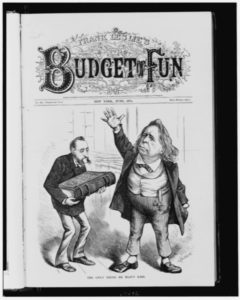
At the end of the Civil War, Henry Ward Beecher, like many other powerful white men North and South, was embedded in a misogynistic regime of gender and sexuality that played as central a role as racism in re-establishing white male supremacy. While David Blight has incisively analyzed the racial dynamics that doomed Reconstruction and re-established white brotherhood under the guise of post-war “healing,” I want to highlight how Beecher participated in and deployed misogyny in the white male halls of power. From 1863 onward, Beecher was obsessed with forgiveness. The most influential preacher in the country, he aggressively agitated for the Union to extend complete forgiveness to Confederates. Preaching what his detractors called “the gospel of gush,” Beecher ricocheted between contradictory positions. He publicly called for suffrage for women as well as black men, but publicly and privately promoted the political and economic interests of white men who exhibited sexual and racial machismo.
Lincoln was not his idea of a strong man; Andrew Johnson was. Just hours after Lincoln was assassinated, Beecher declared: “Johnson’s little finger [is] stronger than Lincoln’s loins.” When Johnson reversed Lincoln’s policies and revealed himself to be an all-out racist, many northerners were incensed, but not Beecher. He asserted that the war had freed blacks and now they could fend for themselves. According to historian Debby Applegate, when Johnson “offered blanket amnesty to all but the very highest-level Rebel leaders and ordered all land in federal hands returned to its former owners, evicting the freedmen who’d been settled on them and sparking a series of violent confrontations,” Beecher supported him. When in February 1866 Johnson vetoed the Freedmen’s Bureau Bill in order to undermine federal protections and actions on behalf of southern blacks, Beecher supported him.
Performing what Frederick Douglass described as “that maudlin magnanimity that is now our greatest danger,” Beecher deployed evangelical tropes of love, forgiveness, and self-pitying brotherhood that upended political visions of justice, compassion, and equality. Dismayed by Beecher’s betrayal, Douglass perceived that white men’s self-pity was a key factor in the resurgence of anti-democratic forces. Douglass’s incisive phrase interlinked Beecher’s hyper-sentimental theatrics with Johnson’s well-known (maudlin) drunkenness to underscore the danger to the republic of white male supremacy masquerading as moral generosity: a politics of “forgiveness” intended to re-establish the pre-war status quo, at the expense of African Americans, women, and everyone who had suffered and died in fighting for a more perfect union. (Figure 7)
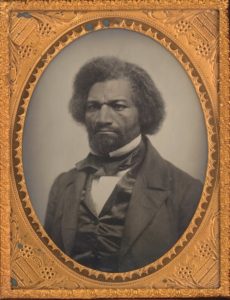
Harriet Beecher Stowe was horrified by her brother’s advocacy of political forgiveness. Her son Frederick had suffered a head injury at the Battle of Gettysburg in 1863 while Henry was amusing himself on the Swiss mountainside. In 1866 she explained to him why his sermons advocating forgiveness aroused so much ire: “the reaction against you personally . . . has for its secret the soreness which comes when a dear friend turns his sympathy from us, to our enemies.” She continued: “Mrs Shaw says to me — ‘My husband was going the way Henry is but the girls said ‘Father if you do feel so . . . don’t disgrace your family by saying it.’” Harriet advised Henry to display more understanding of grief and desolation. She reminded him that they were fighting for “national justice.” (Figure 8)
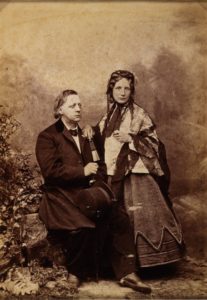
Meanwhile, Sarah Shaw’s closest friend, Lydia Maria Child, was appalled by Beecher’s political betrayal. She ranted to Sarah that Andrew Johnson was restoring to slaveholders “their thousands of acres, and will not let the freedmen have an acre.” She continued: “To think of a man like H. W. Beecher lending himself to the unprincipled schemes of the tippling traitor, that boozy boaster, that devilish demagogue! What can be his motive?” (Figure 9)

What indeed motivates “forgiveness” as a social policy when it is disconnected from admission of wrongdoing and the quest for justice? From the earliest days of his marriage, Beecher learned to treasure the pleasures of looking away from suffering, injustice, and death. His society granted expansive permission for white men to avoid behaving like adult members of a moral community. “Boys will be boys” at the expense of everyone else. The process through which the Confederacy won the peace included a postbellum northern culture where prominent leaders like Beecher fortified misogyny and racism through sanctimonious tropes of evangelical love and forgiveness. Extending facile, unearned forgiveness to self-pitying and unrepentant men, Beecher undermined accountability and justice. He became the flagbearer for an aesthetic and theatrics of gender and race that flirts with maudlin dictatorship.
Further Reading
Debby Applegate, The Most Famous Man in America: The Biography of Henry Ward Beecher (New York: Doubleday, 2006).
David Blight, Frederick Douglass: Prophet of Freedom (New York: Simon and Schuster, 2018).
David Blight, Race and Reunion: The Civil War in American Memory (Cambridge, MA: Harvard University Press, 2002).
Barbara Goldsmith, Other Powers: The Age of Suffrage, Spiritualism, and the Scandalous Victoria Woodhull (New York: Alfred A Knopf, 1998).
Kate Manne, Down Girl: The Logic of Misogyny (New York: Oxford University Press, 2018).
Simon Stow, “Agonistic Homegoing: Frederick Douglass, Joseph Lowery, and the Democratic Value of African American Public Mourning,” American Political Science Review 104, no. 4 (Nov. 2010): 681-97.
Henry Ward Beecher’s letter to Sarah S. B. Shaw (August 7, 1863) is located at the Boston Athenaeum, Shaw Family Letters received 1859-1940, Mss. .L613. I am grateful for their permission to quote.
Harriet Beecher Stowe’s letter to Henry Ward Beecher (Oct. 1866) is in the E. Bruce Kirkham Collection at the Harriet Beecher Stowe Center in Hartford, Connecticut. The original is at the Sterling Library, Yale University. Lydia Maria Child’s letter to Sarah Shaw (Sept. 7, 1866) is included in Lydia Maria Child, Selected Letters, 1817-1880, ed. Milton Meltzer and Patricia G. Holland (Amherst: University of Massachusetts Press, 1982). Additional letters by Lydia Maria Child are collected in A Lydia Maria Child Reader, ed. Carolyn L. Karcher (Durham, NC: Duke University Press, 1997).
This article originally appeared in February 2022.
Kari J. Winter is a Professor of American Studies in the Department of Global Gender and Sexuality Studies at the University at Buffalo, SUNY. Her books include The American Dreams of John B. Prentis, Slave Trader; The Blind African Slave: or, Memoirs of Boyrereau Brinch, Nick-named Jeffrey Brace (a scholarly edition of a long-lost 1810 slave narrative), and Subjects of Slavery, Agents of Change: Women and Power in Gothic Novels and Slave Narratives, 1790-1865.



